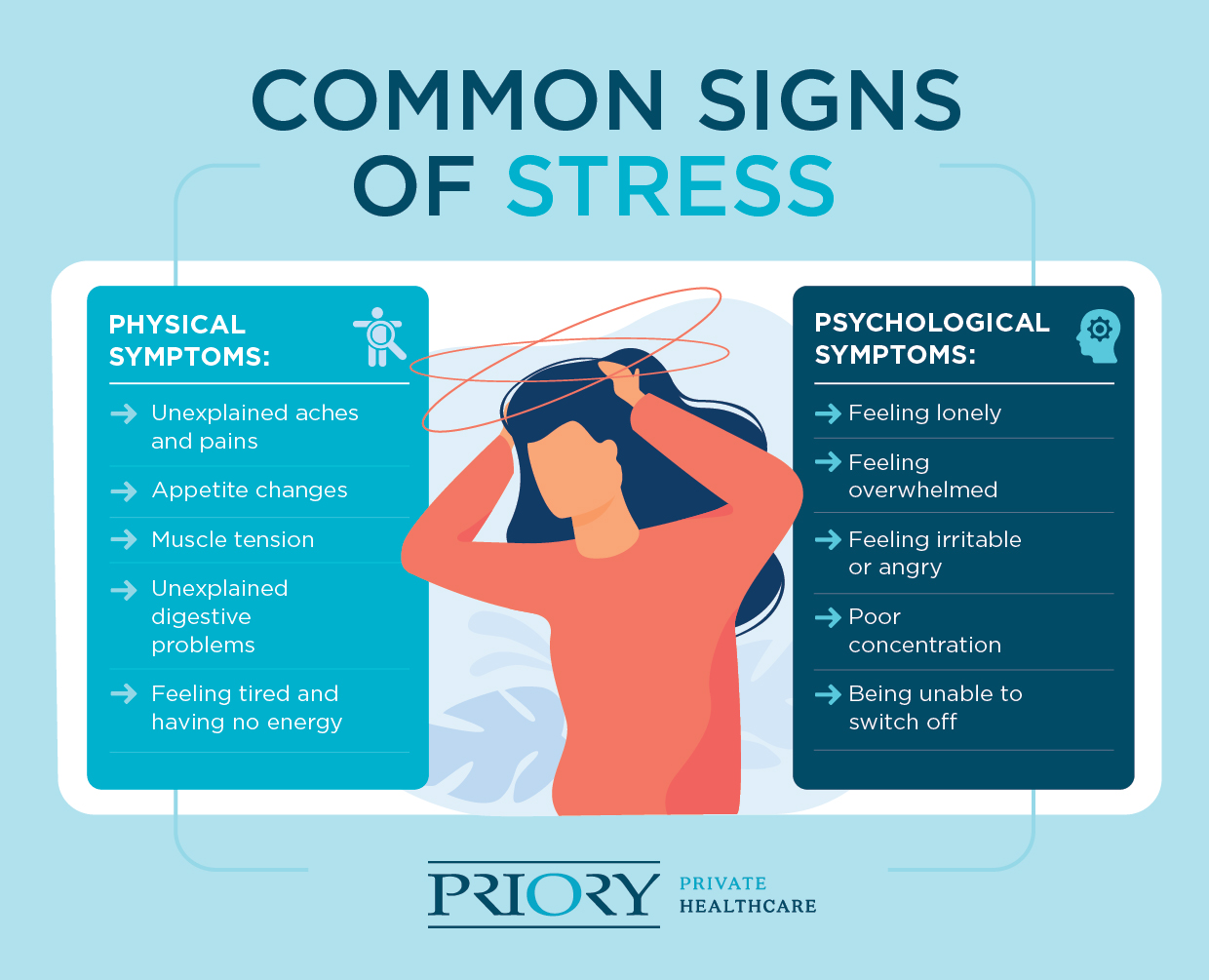Personalised stress treatment
At Priory, we offer treatment for stress that's tailored to your needs. Our comprehensive, bespoke packages of care are designed to give you the best possible chance of a healthier, more positive future.
The Priory mental health team will look at your current situation, stress triggers and desired outcomes, working with you to create a stress counselling programme you're happy with.
It's important to know that any level of stress is treatable and you can reduce your symptoms. Stress counselling can teach you how to manage your worries so they don’t overwhelm you.
By seeking specialist stress treatment at Priory, you're already taking action in dealing with a significant mental health challenge and achieving a healthier, more productive life. We'll give you the tools to turn your situation around and maintain a fulfilling life beyond your treatment programme.
Types of stress treatment at Priory
The type of stress treatment programme you’ll benefit most from depends on your personal circumstances, as well as the severity of your stress symptoms. We deliver stress treatment at our Priory sites in a variety of ways:
- Outpatient treatment – usually undertaken in weekly hour-long therapy sessions at one of our hospitals or wellbeing centres
- Day care programmes – structured, ongoing support in the form of weekly half-day or full-day therapy sessions
- Inpatient treatment – an intensive programme undertaken on a residential basis, with 24-hour support
You can access treatment through various payment options, including your personal medical insurance. We are an approved mental healthcare provider for the full range of leading UK medical insurers. These include Bupa, Vitality, Aviva, Cigna and AXA Health.
All of these programmes are delivered in a safe, supportive and highly therapeutic environment. Our stress treatment counselling is available in a range of formats depending on your requirements, including one-to-one therapy, group therapy, and family/couples therapy.
Stress recovery counselling that benefits everyone
Remember that you don’t have to suffer alone, as we are ready to hear your story and understand what you're going through. Our experienced, specially-trained stress therapists can help you to regain a sense of control over whatever life brings.
Opening up to someone about what you're going through can be very powerful. Our compassionate team of mental health experts are here to listen. They can advise on your next steps, informed by their wealth of experience treating people with similar struggles.
Just know that there's no judgement, whatever your circumstances. There's no shame in needing help with addressing stress. It's a debilitating problem for many people and we have seen first-hand the very real effects it can have.
We have helped many people to address the impact of stress. We want to help you do the same, rediscovering your confidence and breaking negative thought patterns. Our stress recovery counselling can help you to enjoy a more positive relationship with yourself and those around you.







